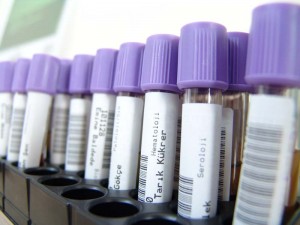 The FDA recently changed its stance on genetic testing that individuals can carry out in their own homes. People who want these genetics tests send DNA samples through “spit kits” to the laboratories that provide such services. The Food and Drug Administration (FDA) did not previously regulate in-home genetic testing because all samples are analyzed at company-owned laboratories. This contrasts with other medical diagnostic kits, which are evaluated in hospitals and laboratories around the country. Last week, the FDA sent out letters to in-home diagnostic companies requiring them to apply for approval or prove the clinical validity of their devices.
The FDA recently changed its stance on genetic testing that individuals can carry out in their own homes. People who want these genetics tests send DNA samples through “spit kits” to the laboratories that provide such services. The Food and Drug Administration (FDA) did not previously regulate in-home genetic testing because all samples are analyzed at company-owned laboratories. This contrasts with other medical diagnostic kits, which are evaluated in hospitals and laboratories around the country. Last week, the FDA sent out letters to in-home diagnostic companies requiring them to apply for approval or prove the clinical validity of their devices.
The FDA wants to regulate in-home tests because “Consumers may make medical decision in reliance on this information,” as stated in letters to multiple companies. For example, individuals who test positive for specific mutations of the BRCA1 or BRCA2 genes have increased risks of cancer. Some mutations indicate that a person may have an 85% risk of breast cancer compared to the 13% risk in the general population. Individuals with BRCA gene mutations also can have a 54% risk of ovarian cancer, up from 2%. In response, people may elect preemptive mastectomies or ovarian removal to prevent such cancers, two surgeries that should not be taken lightly and rely on accurate information.
While in-home diagnostic tests may be attractive due to ease-of-use, patients enjoy the care provided from testing in a clinical setting. “At most hospitals, clinical geneticists are at hand,” says Kristin Smith, Patient Navigator for the Division of Fertility Preservation at Northwestern University. This allows a patient to learn their genetic results and receive comprehensive options in a “fast process,” says Smith. Whether genetic testing is done in-home or at a clinic, increasing the number of people who receive such personalized preventive medicine will decrease the number of cancer patients in future decades.

